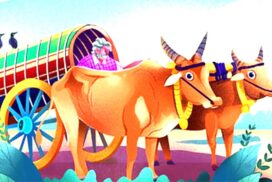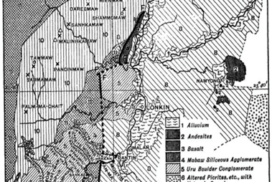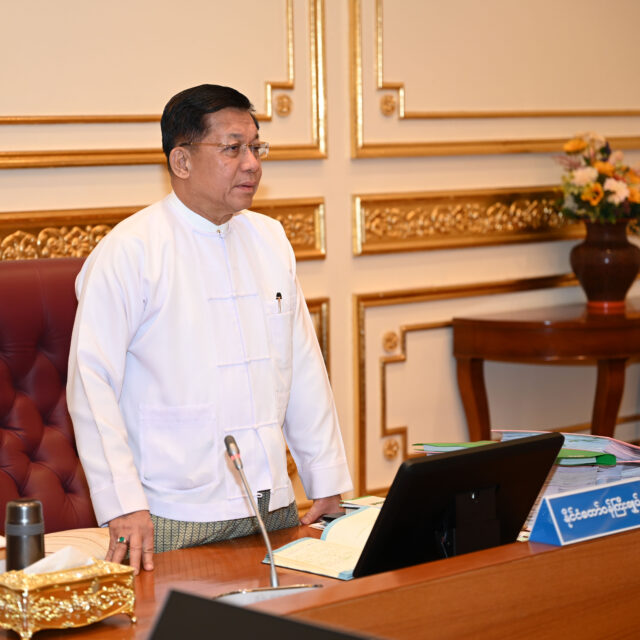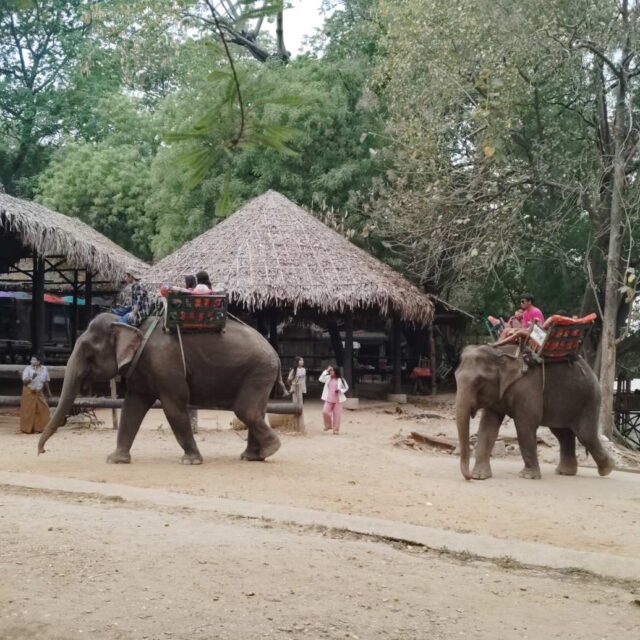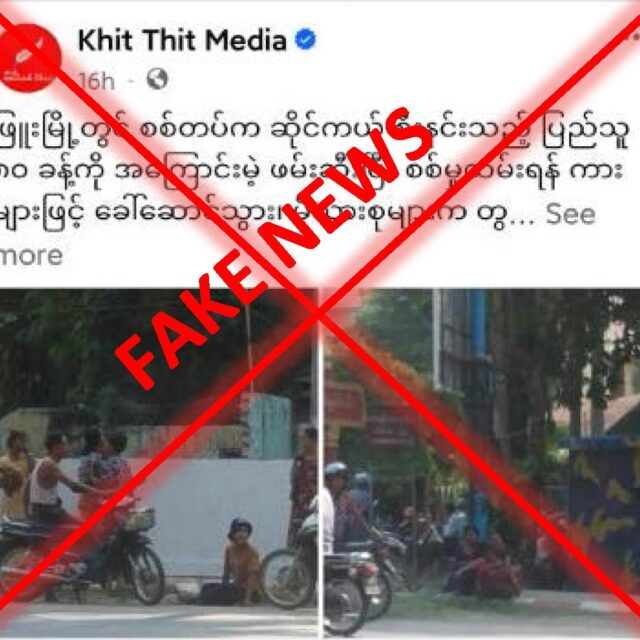By Aung Kyaw Thant
All of the Lord Buddhas Who attained the Enlightenment how to walk along the path heading to the Nibbana preached the universal truth, which is unchangeable. The usage of a singular form of the universal truth represents four noble truths that reciprocally symbolize a singular usage of the universal truth.
Four noble truths
These four noble truths which were very firstly preached by the Lord Buddha are Dukkha Sacca: the noble truth of suffering, Samudaya Sacca: the noble truth of origin of suffering, Nirodha Sacca: the noble truth of attaining the cessation of consciousness, and Magga Sacca: the noble truth of the right path to Nibbana.
Everybody should understand that they hold up the truth as they like, depending on their perceptions of everything. Despite saying different stories of the truth, even two persons do not have the same approaches to the truth based on their concepts. Hence, all the global people are on the different ways of approaching the truth. Naturally, the outlooks of those who are holding the different types of truths cannot be similar. They all have to enjoy the rights of holding up diverse opinions. But they all march forwards the universal truth, which must be a common truth as well as the very single truth. The universal truth does not have any rival truth.
Nowadays, most of the people say: their concepts are true, but other’s concept is wrong; something special is true, but another is wrong; some acts are true, but other’s ones are wrong; some opinions are true, but other ones are wrong; some doctrines are true; some attitudes are true; some ways and means are true; some systems are true; and so on. It is because they compared their concepts with the others but not actually analyze their concepts are right or wrong.
Changeable or unchangeable truths
In fact, everybody should understand that the truths they hold up are the unfirmed items. It is because these truths are changeable depending on situations and times. The truth we say today may not be accepted tomorrow. The truth someone accepts today may not be disagreed by all tomorrow. Somebody cannot accept the truth of others. Likewise, the truth related to the concept of somebody may be unacceptable for them. The truth that a father told his son yesterday may be unacceptable today, but it may be accepted by his grandson tomorrow. Sometimes, everybody unavoidably discards the truth that many people firmly believe various reasons based on the politics or ideologies or others. For example, Myanmar people kept their concepts and ideas in their minds during the colonial era and Fascist occupation era because of threats imposed on their lives.
In this regard, I mean all the truths accepted by everybody are unfirmed. This is why all the changeable truths are the unfirmed truths. On the other hand, it can be said these truths may be reality. Indeed, the real truth cannot be changed, revoked, revised, amended, edited and improved. The universal truth is absolutely comprehensive. Any way cannot be used to deform the universal truth. Although various kinds of truths based on the outlooks of relevant persons may be controversial, everybody cannot deny that the universal truth is unchangeable and uncontroversial.
Finding on universal truths
Human beings have clearly understood the universal truths in various sectors across the world for about some centuries. But, the Lord Buddha, namely Gotama Buddha, had preached the universal truths comprising four noble truths leading to the Nibbana since about BC 600. According to the treatizes of Buddhism, all the Lord Buddhas had preached the universal truth leading to the Nibbana. The Nibbana is the most ultimate goal of the Buddhists. Those Buddhists set the target to attain the Nibbana at the end of their life circles. They accepted various doctrines and isms as well as religious goals but wished to attain the Nibbana in the last life.
In various lives that the Buddhists accept the life circle based on their good and bad deeds, they may hold diverse doctrines, isms, concepts, ideas and attitudes. Even though they chose the wrong paths leading to their goals, they wish to understand and accept the universal truth. Therefore, members of the Sangha who follow the codes of conducts of the Buddhist monks prescribed by the Lord Buddha administer Dhamma Desana, which mentions the best ways and time to the Nibbana by understanding four noble truths: Dukkha, Samudaya, Nirodha and Magga.
Currently, ordinary people chant what the best truth is and what is the top truth. But, it is believable that some truths would be firmed and unchangeable till tomorrow morning. These truths are unsure to firmly exist. In fact, everybody should analyze that one’s concept is true today, but such a concept can be identified as a wrong one the other day. So, everybody should emphasize that they need to have the rationality to analyze everything. Everybody should take every truth into consideration.
Limit of various truths
The truth which may be firmed one morning can be identified as one-morning truth. So also, everybody can identify something special as a day truth, a week truth, a month truth and a year truth as well as a life truth. Even life truth should not be identified as the universal truth. It is because such truth has just a life span only, but its term cannot be beyond the period of one life. So, we can adopt the conclusion that if a truth is placed under a limited period, it will not be a universal truth.
Although today’s truth can be substituted with tomorrow’s wrong, it is just identification. It depends on the own concept of analysts. Those who firmly uphold different concepts will not disagree with other concepts. They will seem all concepts that are different from their concepts may be wrong ones. They think something unequal to their concepts will be wrong. Likewise, they think something which has not coincided with the concepts, as well as the truths they accepted, is wrong ones. Actually, we all need to analyze and scrutinize our concepts which are really right or wrong at first.
In fact, the religious concepts and ideologies should not be complicated with that of social and political fields. However, these arenas are interrelated to each other. All the concepts and ideologies can be observed in various arenas. One concept from the religious sector can be used in the political arena, while one ideology is used in the economic sector. Moreover, the political field hires some usages related to the truth from the religious arena.
It is noticeable that concepts, ideas and attitudes concerning the universal truth can be seen in various sectors, but they are changeable. The definition of universal truth used in various sectors is unchangeable.
Hence, whoever says what the universal truth is, we should analyze it under the criteria of noble truth. Do you notice the criteria of the noble truth? Suppose you see a kind of truth. You should analyze it at first whether it is long-lasting truth or not. If it is unchangeable truth until human beings attain the Nibbana, it can be identified as a universal truth.
Identification of the Universal truth
The one-day truth, the one-week truth, the one-year truth and so on, depending on non-religious concepts, is not enlisted in the universal truths. With regard to the religious arena, especially Buddhism, the truth which is long-lasting the whole world (Samsara) which means the time of infinite years heading to the attainment of the Nibbana, can be identified as a universal truth.
In fact, if you comprehensively know the universal truth, it is sure for you to conquer the life circle (Samsara).
(The views and opinions in the article are those of the author).


